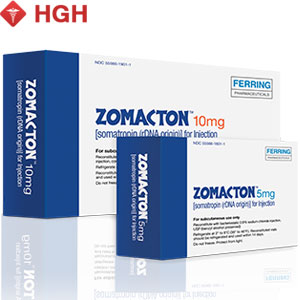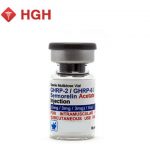
Stress is a normal part of life and humans have many biological mechanisms to respond to stress. A number of hormones are part of that stress response.
These hormones interact with one another to raise the heart rate and blood pressure, release adrenaline and sugar into the blood, and prepare you to fight or flee. Chronic stress, however, can have detrimental effects on many of these hormones and their functions.
The Stress Response
Danger or a perceived threat of any sort triggers the stress response. The brain immediately releases cortisol, the primary stress hormone. In response, the adrenal glands on top of the kidneys secrete adrenaline.
In addition to boosting the biological mechanisms that will protect you if you have to fight or run, stress hormones also suppress non-essential functions.
They alter the immune system and suppress your digestive processes, reproductive system and growth.
All of these changes are quickly reversed when the danger goes away. In situations of chronic stress, however, these systems stay “turned on,” leading to:
- Anxiety
- Depression
- Difficulty concentrating
- Digestive problems
- Headaches
- Heart disease
- Impaired memory
- Sleep problems
- Weight gain.
Stress Affecting Hormone Levels
Stress affects nearly every hormone in the body. Cortisol, the primary stress hormone, is made by the adrenal glands and transported through the body in the bloodstream. Just about every cell in the body has receptors for cortisol. For example, cortisol regulates metabolism by affecting insulin, the hormone that controls blood sugar levels. It acts as an anti-inflammatory, controls the salt and water balance in the blood and cells and affects blood pressure. Cortisone helps promote development of babies in the womb and helps trigger the birth process. Excess cortisone from stress can lead to weight gain, anxiety, depression, high blood pressure, osteoporosis (bone thinning) and changes in the sex drive or menstrual cycle.
Stress Affecting HGH Levels
Human growth hormone, also known simply as growth hormone, somatotropin or HGH, is manufactured by the pituitary gland. It promotes growth in children but also has important functions in adult life, such as maintaining normal body structure and regulating metabolism. HGH naturally increases near puberty and decreases during pregnancy. HGH levels can be increased by stress and are also affected by exercise, sleep and blood sugar levels. Excessive growth hormone can cause a condition called gigantism in children or a condition called acromegaly in adults. Too little growth hormone can result in dwarfism. In some cases, adults need HGH injections because their levels are very low and are causing problems.
Stress Affecting Testosterone Levels
When you are in a dangerous, highly stressful fight-or-flight situation, reproduction is way down on the list of the body's priorities. Testosterone is secreted by both men and women (as is estrogen) but testosterone levels are much higher in men. As cortisol levels rise, they suppress testosterone. While a normally healthy body quickly returns to pre-danger levels, in situations of chronic stress, cortisol levels remain high, and continue to suppress testosterone. Low testosterone can result in decreased libido (sex drive), fatigue and depression, and may also affect fertility. However, not all men with low testosterone levels display obvious symptoms. If levels are low enough, some men may require testosterone supplements, which are given by injection and require a doctor's prescription.
Reacting to Stress
While we are all susceptible to stress affecting hormone levels, each person reacts differently. The two factors that seem to make the biggest difference in how people react to stress are their genetic background and their life experiences. Your genetic background governs all of your biological functions. With stress affecting testosterone levels, for example, men who have naturally higher levels of testosterone will respond differently than those who have naturally lower levels. Negative life experiences, such as childhood neglect or abuse or trauma from violent crime, airplane or auto accidents, can create the conditions for a strong stress response and chronic problems afterward. Learning to manage your stress response can help you function in a healthy way.
Managing Stress
Many of the ways to manage stress are very basic health strategies. The first is to ensure adequate sleep, as sleep deprivation increases stress levels and affects all of the body's functions. It also has an impact on how you perceive stressful situations. Regular physical exercise promotes sleep and also relieves tension. Practicing yoga, mindful medication or relaxation exercises calms the mind and body, as does massage. Practicing gratitude, volunteering or giving back to the community and making time for hobbies and healthy friendships are other ways to manage stress, as does having a sense of humor.
When You Need Help
Psychological counseling may be necessary for some people who are highly reactive to stress or who have suffered trauma. In some cases, despite using the health-promoting strategies mentioned above as well as counseling, HGH and testosterone levels may still remain low. In addition to causing unpleasant symptoms, level levels of these hormones can have negative physical health effects and may even shorten the lifespan. No one should take supplemental hormones casually – it's important to have a full physical examination and to confirm low hormone levels with laboratory tests. Hormone injections require a prescription and the dose must be adjusted for maximum benefit. Oral forms of these hormones aren't all that effective.




